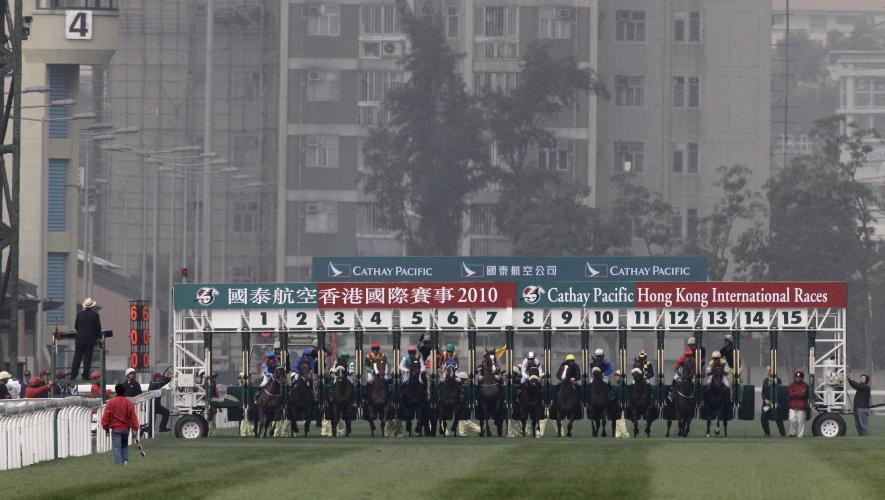Hong Kong to provide racing on China mainland by 2019

A visit to Hong Kong for the International Races in December never fails to uncover a surprise or two, and this year is no exception.
The latest news concerns the Hong Kong Jockey Club's lavish training complex at Conghua, near Guangzhou in southern China, where officials plan to stage racing by 2019.
The twist to the story is that while Hong Kong-owned horses will provide the sporting action, there will no betting -- neither in China on course, nor Hong Kong off-track -- and television coverage of the races will be on a delay of several minutes.
Winfred Englebrecht-Bresges, chief executive of the Hong Kong Jockey Club, explained that there were plans to develop the area around Conghua for tourism.
"Our development in Conghua is not for introducing racing with betting, especially as it is against the law in the Chinese Mainland.
"We firmly believe we can strengthen the positioning of Conghua as a tourist destination, giving Conghua a unique branding similar to Baden-Baden with its hot springs and racing, and create significant value for the region by attracting high-value tourists," he pointed out.
Conghua is being built as a state-of-the-art training facility designed to complement Sha Tin, which became Hong Kong's second course when it opened in 1978. It is hoped it will relieve pressure from Sha Tin, where lack of space has cramped expansion.
Conghua and Sha Tin are situated approximately 100 miles apart.
One hurdle to be cleared before Hong Kong can continue to thrive as a racing capital is an issue over quarantine, which arose in September and prevents Hong Kong horses entering Australia without serving a six-month isolation period in a third country.
It revolves around an Australian government decision to suspend Hong Kong's quarantine status in September because of the opening of Conghua and subsequent exposure of local horses to an environment considered at risk to disease by Australia's Department of Agriculture and Water Resources.
Government red tape now appears to be delaying the process of an appeal by Hong Kong for Australia to review its ban.















